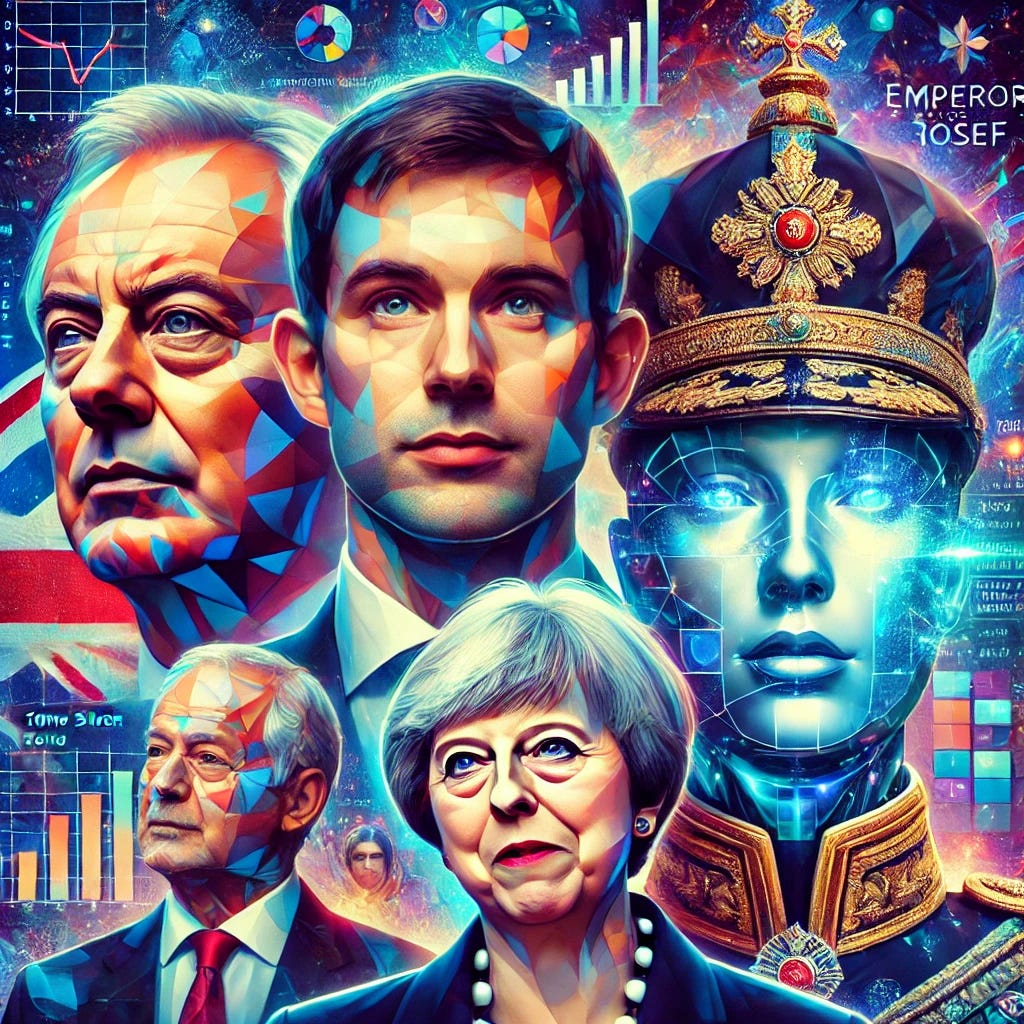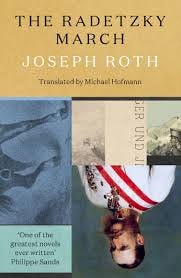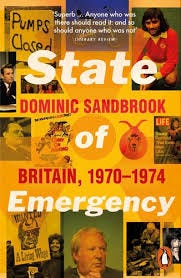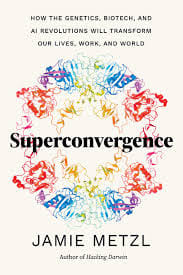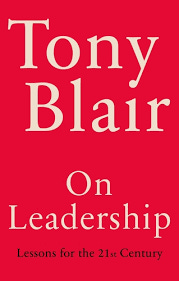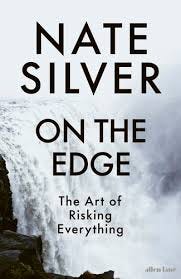IP30: What I've Been Reading In 2024
What I’ve Been Reading This Year
I hope that everyone has had a nice Christmas. Thanks again for all of your support this year.
And apologies for the pause between posts. Plenty of things happening all at once…
As has now become tradition (having done it twice before), I’m using this quiet time between Christmas and the New Year to look back on my favourite reading this year. Please let me know what you think and whether I’ve missed anything.
And for those who wondered what on earth is going on in the image above, I asked ChatGPT: “Could you please do me an image with the faces of Tony Blair, Nate Silver, Emperor Franz Josef, Theresa May and an AI chatbot”…
Back in a few days, with a look back at 2024.
Have a great New Year’s Eve.
Books about history…
The best book I’ve read this year has nothing to do with tech, or business, or strategy. It’s a great historical novel centred around the decline of the Austro-Hungarian Empire. The Radetsky March by Joseph Roth, named after the magnificent piece of music that Roth described as “the Marsellaise of conservatism”, chronicles the fortunes of the Trotta family across several generations. Originally recommended by Tom McTague from the These Times podcast - it’s very much worth a few hours of your time. On the same topic, Christoper Clark’s The Sleepwalkers tells the gripping, but grim, tale about the mis-steps that led Europe into the First World War and to all of the catastrophes that followed it.
Tim Shipman is the master chronicler of recent events of British politics. His All Out War and Fall Out chronicled the rupture of the British ruling class around Brexit. And his final two versions in the quartet pack a real punch. No Way Out tells the story of the Brexit negotiations, where the body politic almost stopped functioning an contains multiple “what if” moments. And then Out tells the inside story of the Johnson, Truss and Sunak Premierships, with their assorted dramas and disasters. Compulsive “inside the room”reading.
I’ve also been thoroughly enjoying Dominic Sandbrook’s post-war history of Britain. Starting in the 1950s and going all the way through to the Falklands War (future volumes are promised soon). He wraps high politics together with cultural events and societal events. The analogies between the story he tells of Britain in the 1970s (Seasons in the Sun, State Of Emergency and Who Dares Wins) and the country we see today are striking - a feeling of stagnation, with politicians constantly buffeted by external shocks and their own inadequacies. It was also a time of big and bold ideas to change things - sadly that is where the comparison with today ends. Sandrook also co-hosts The Rest Is History with Tom Holland - probably the best and most consistent podcast out there.
Books about AI…
Tech and AI are, of course, the bread and butter of this Substack and there’s been a stack of good writing about the topic this year. From inside the industry, Deepmind co-founder Mustafa Sulleyman, who is now at Microsoft, has written a balanced account of the emerging impact of AI in The Coming Wave. My former colleague, Verity Harding, has written a really important book about the importance of societally led AI, simply titled AI Needs You. Jamie Metzl’s Superconvergence reflects on the convergence of the AI, genetic and biotech revolutions and what they might mean, for good and for ill.
There’s also been some great long-form writing about the potential use cases and benefits of AI. Anthropic co-founder, Dario Amodei wrote Machines Of Loving Grace, which possibly made the best case yet about the potential societal and economic benefits of AI or “what the upside looks like”, whilst also being couched in an understanding of the risks and the need to keep language of AI’s benefits grounded and tangible, rather than lost in sci-fi. A research team at Deepmind have also set out the scientific advances that AI could bring in science and, consequently for wider humanity, with what they describe as a new golden age of discovery.
Books about leadership
What makes for good and bad leadership? Only a few politicians have managed to both lead successfully and then write about it in a way that remains compelling (too many read like dramatisations of their diaries). Lee Kuan Yew is one of those people and each day when Singapore’s remarkable economic and societal success becomes clearer is another day when his writing about leadership, state building and developing a strong economy and society rightly gain new adherents.
The best recent political creed on leadership came this year from Tony Blair, a man who admits that his frustration at having the greatest power and political capital in 1997, when he didn’t have the skills to make the most of them that he would develop a few years later. His book, Leadership, is a tremendous and very practical guide to leadership. And, unsurprisingly, Lee Kuan Yew gains multiple mentions including, possibly more surprisingly, his advice to Blair about using meditation to relax.
There’s much that will be familiar in this book to anyone who’s read a business leadership text. But his use of personal anecdotes and, at times, unsparing honesty livens things up. And any book with a chapter entitled “The Supreme Importance of Strategy” deserves respect. Where it really comes to life is the section about how technology can transform politics, government and society for the better, what Blair describes as a “reimagined state”, with the infrastructure and skills to match. It made me think about what a shame that the best case for tech optimism on this side of the Atlantic is being made by a retired elder statesman. I made the case for a tech optimist politics in IP23.
A very different, but very successful, form of leadership has been displayed by Elon Musk. Consistently controversial, but he hs founded three multi-trillion dollar tech companies and his high stakes, all-in bet on Donald Trump certainly paid off. Walter Isaacson’s biography paints a colourful picture of this extraordinary character.
Books about risk-taking
Nate Silver has had a good year. He’s one of the most successful, readable, and profitable, Substackers. His writing (and podcast with Maria Konnikova) are considerably more insightful and interesting than what a corporatised and ossified 538 he left behind has become. And he has a much more compelling explanation about why Trump won and Harris lost than most.
His most recent book focuses on one of the issues I’m most interested in - risk-taking in business. As I mentioned in IP27 , one of the issues facing stagnating European economies is the lack of a culture of risk and incentives for risk-takers. In this book, Silver immerses himself with the ultra risk-takers - the venture capitalists, tech entrepreneurs and even the pro poker players to understand what makes them tick.
He calls this new generation of ultra risk takers “The River”, which he contrasts with what he calls “The Village” - with established positions in government, academia and much of the media. He talks about the mindset of “Riverians”, how they handle and thrive on pressure and how they deal with setbacks.
It’s a great read. And it’s even more interesting now that big figures from the River are also about to become big figures in the US government.


